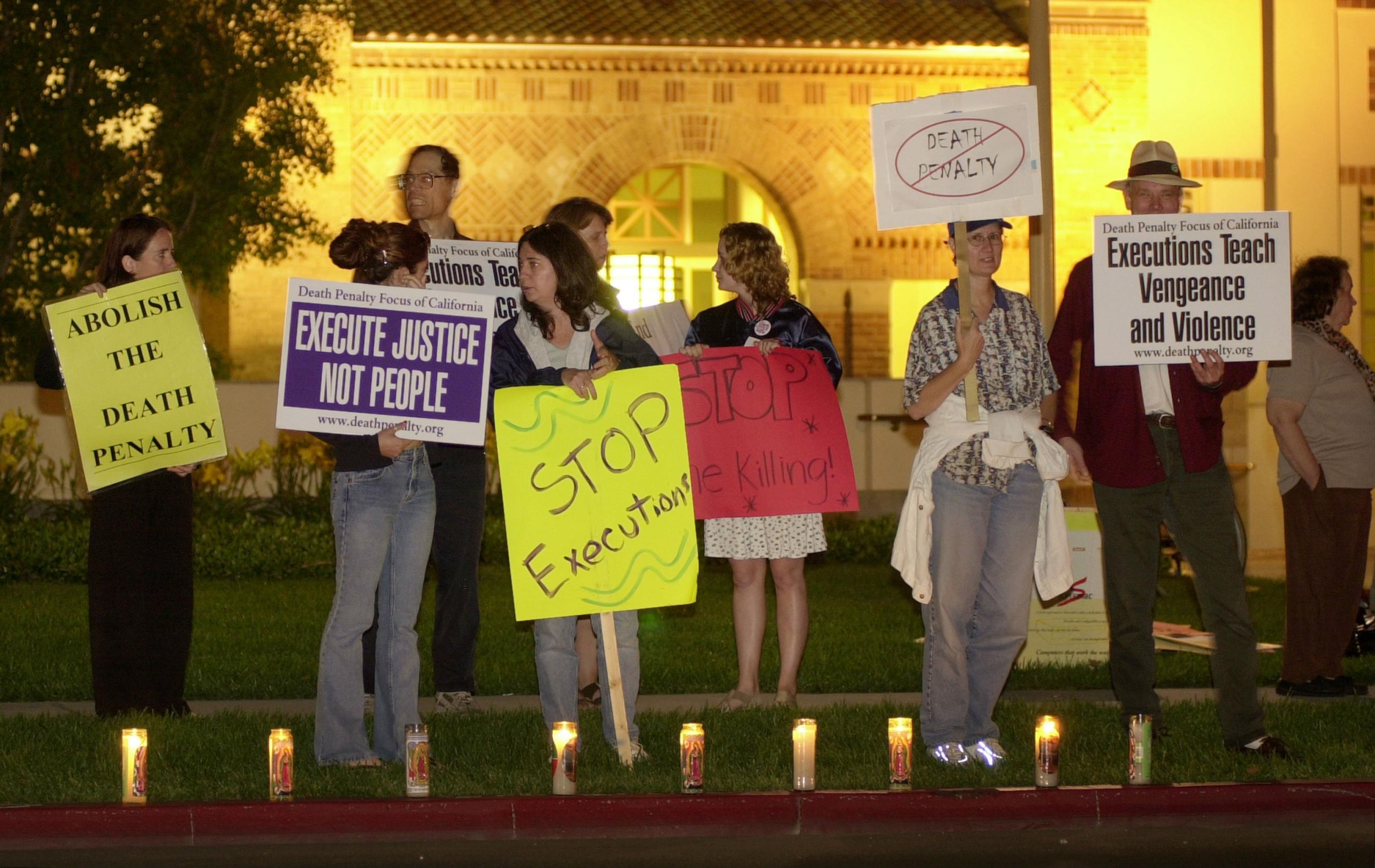Why Trump bringing back federal death penalty is about 2020 re-election, not law and order
Analysis: This is not first time president has used issue to his benefit
When the US government last restarted executing prisoners, it put to death Timothy McVeigh, one of two men convicted of the Oklahoma City bombing.
On a warm June morning in 2001, the 33-year-old was strapped to a gurney and executed by lethal injection – his eyes reportedly wide open – as punishment for the 1995 bombing that killed 168 people and injured scores more.
The execution at the federal jail in Terre Haute, Indiana, was broadcast live via a CCTV feed to more than 200 survivors and relatives, sitting and watching in Oklahoma City. George W Bush’s administration put to death two other prisoners: Juan Raul Garza, who was executed a week after McVeigh, and Louis Jones in March 2003.
Now, after a break of almost two decades, Donald Trump has put the federal government back in the execution business. Attorney general William Barr announced on Thursday that the department of justice had scheduled executions for five federal inmates convicted of murders and sex crimes.
“We owe it to the victims and their families to carry forward the sentence imposed by our justice system,” Barr said in a statement, saying more executions would be announced.
Yet many suspect the announcement has as much to with Trump’s re-election campaign as it does with his administration’s desire to deliver justice. While the death penalty has traditionally been an issue on which Republicans have campaigned, support for executions in the US has declined in recent years.
“Public opinion polls show that support for the death penalty is currently near historic lows after peaking in 1994 and declining over the last 25 years,” says the Death Penalty Information Centre, based in Washington DC.
It says a poll conducted last year found just 54 per cent of Americans support the death penalty, and under half believe it is applied fairly, underlining the vast racial and economic discrimination that plays out in death penalty policy. A staggering 42 per cent of people put to death in the US are black, even though African Americans account for just 12 per cent of the population.
“This is absolutely about Trump delivering [to his supporters] – just like with the tax cuts and Supreme Court appointments,” says Jeanne Zaino, professor of political science at Iona College in New York. “This is all about rallying the troops. He can talk about it at the party convention, and during the debates.”

Zaino doubts that the announcement, which comes amid a flurry of reports about Robert Mueller confirming the president had tried to fire him and that his investigation did not exonerate him, was a coincidence.
“When Mueller was last supposed to testify, he organised a rally. When Mueller was postponed, the rally was called off,” she tells The Independent. “This [announcement] has taken up a lot of the news today.”
It would not be the first time Trump has used the issue of the death penalty for his own ends. In 1989, as he was building his real estate empire and promoting his first book, The Art of the Deal, he seized on the case of the Central Park Five – five black teenagers arrested and detained over the assault and rape of a white jogger.

In a move that was perceived to stir up fervour against the young boys, who insisted they were innocent, Trump spent thousands of dollars to take out full-page adverts in the city’s major newspapers calling for the reintroduction of the death penalty. In a CNN interview that year, Trump told Larry King: “Maybe hate is what we need if we’re gonna get something done.”
The five teenagers were eventually exonerated, and the city obliged to pay millions of dollars in compensation. To this day, Trump has refused to admit he was wrong, or acknowledge their innocence.
Trump defended his actions last month when asked about the case, which had recently been the subject of a Netflix series, When They See Us.
“You have people on both sides of that,” he told reporters at the White House. “They admitted their guilt.”
Not all conservatives or Republicans will support Trump’s decision to once again involve the federal government in the death penalty, which remains on the books in around 30 states, even though the vast majority of executions are carried out in Texas, Oklahoma and the south.
There are currently 62 federal inmates on death row, including Dzhokhar Tsarnaev, who planted a bomb at the Boston Marathon in 2013. Of those, 26 are black, 27 per cent are white and seven are Latino, as well as one Asian and one Native American.
Hannah Cox, national manager of Conservatives Concerned about the Death Penalty, says the move goes against the national trend.
She says: “A growing number of conservative state lawmakers are driving that trend because they realise that capital punishment goes against their principles of valuing life, fiscal responsibility and limited government, and that the death penalty does nothing to make the public safer.”
Join our commenting forum
Join thought-provoking conversations, follow other Independent readers and see their replies
Comments
Bookmark popover
Removed from bookmarks